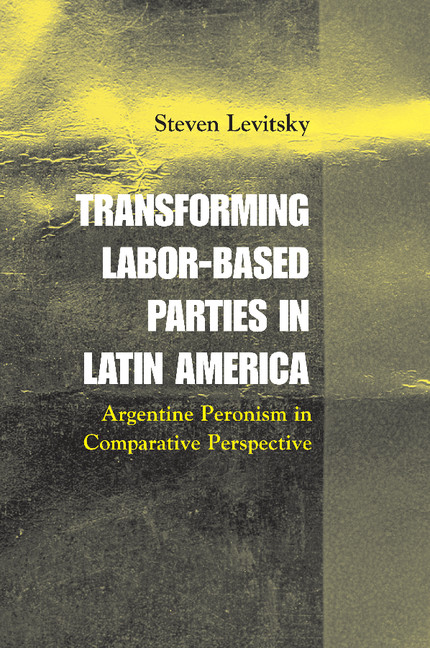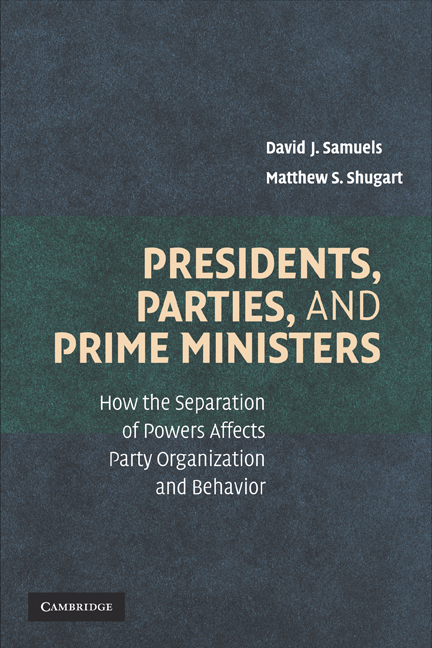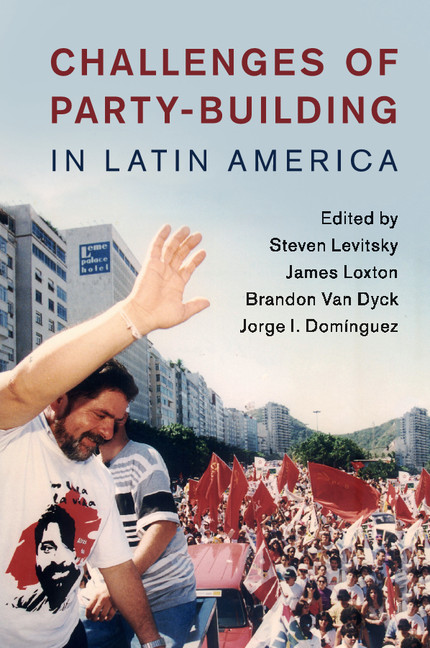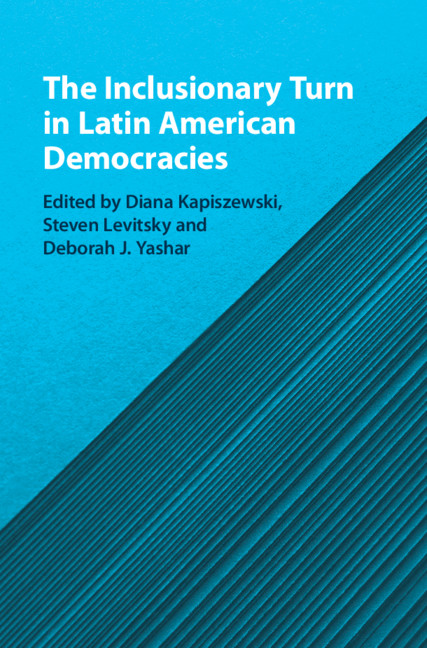Transforming Labor-Based Parties in Latin America
This volume explains why some contemporary Latin American labor-based parties adapted successfully to the challenges of neoliberalism and working class decline. It argues that loosely structured party organizations tend to be more flexible than the bureaucratic structures found in most labor-based parties. The argument is illustrated through an analysis of the Argentine (Peronist) Justicialista Party (PJ). The book shows how PJ's fluid internal structure allowed it to adapt and transform itself from a union-dominated populist party into a vehicle for carrying out radical market-oriented economic reforms.
- First book on how contemporary Peronist party functions, and one of few existing books on contemporary Latin American party organizations
- Bridges European literature on party organization with Latin American cases, refining this literature to include cases of informal party structures
- Explanation of Carlos Menem's extraordinary capacity to 'get away with' radical economic reform
Reviews & endorsements
"The result of [Levitsky's] work is a book that not only adds to our understanding of one of Latin America's most notorious parties, but provides useful theoretical insights for the study of parties and politics across all regions. His work sets high standards of research, conceptualizing, and theorizing, and it gives impetus and direction to the study of political parties in Latin America." Latin American Politics and Society
"Highly recommended." Choice
Product details
January 2003Paperback
9780521016971
306 pages
242 × 146 × 18 mm
0.4kg
1 b/w illus. 29 tables
Available
Table of Contents
- 1. Labor-based party adaptation in the neo-liberal era: rethinking the role of party organization
- 2. Origins and evolution of a mass populist party
- 3. An 'organized disorganization': the Peronist party organization in the 1990s
- 4. Populism in crisis: environmental change and party failure, 1983–5
- 5. From labor politics to machine politics: the transformation of the party-union linkage
- 6. Menemism and neoliberalism: programmatic adaptation in the 1990s
- 7. A view from below: party activists and the transformation of base-level Peronism
- 8. The paradox of menemism: party adaptation and regime stability in the 1990s
- 9. Crisis, party adaptation and democracy: Argentina in comparative perspective.















